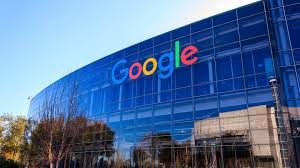 The Google has embarked on what looks to be a fairly main policy development to how Android complies with the European Union (EU) norms, even as the company is fighting the anti-trust ruling tooth and nail. Back in July, the European Commission had ordered Google to stop asking phone makers to preload Google Search and Google Chrome web browser on Android devices—and Google was fined a huge $5 billion for antitrust violations. Now, the company is changing policy in terms of how the EU wants it to operate in the region.
The Google has embarked on what looks to be a fairly main policy development to how Android complies with the European Union (EU) norms, even as the company is fighting the anti-trust ruling tooth and nail. Back in July, the European Commission had ordered Google to stop asking phone makers to preload Google Search and Google Chrome web browser on Android devices—and Google was fined a huge $5 billion for antitrust violations. Now, the company is changing policy in terms of how the EU wants it to operate in the region.
The first change is about how Google is changing the way it licenses its suite of Android apps in Europe. It is the first time ever that Google will now charge a licensing fee from Android device makers for installing the Google Play Store and other Google apps on devices that they sell. While the base Android operating system as it is remains free to use, any other apps that phone and tablet makers would want to install on their phones, such as the Play Store or the Chrome browser or Maps, will be available for a license fee. The advantage is that device makers are no longer required to accept all Google apps as a bundle. The flipside is, this is an added cost for device makers, which they will eventually pass on to consumers by slightly increasing prices of the devices they sell.
The way this will work is that Android, formally referred to as Android Open Source Project (AOSP) is free to use. On top of that, apps such as the Play Store and some other apps including Gmail, Google Maps, and YouTube, will be available as part of a licensing agreement. The Chrome web browser and Google Search remain optional, but can be added to the licensing agreement, but for a free. The fee structure for these Google apps is not yet clear.
The Android device makers in Europe now have three options. First is to make and sell Android devices without Play Store or any other Google apps—restrictive to use. The second option is to sell Android devices with Play Store and apps such as Maps, Gmail and YouTube, but not pay the extra licensing fee for the Search app and the Chrome web browser—but that would take away a considerable amount of the traditional Android phone experience, since the Search app is deeply integrated into Android, for instance the Google feed home screen. The third, and this is how Android phones and tablets were sold thus far, is to bundle all the apps that Google offers.





